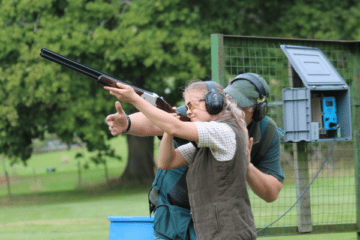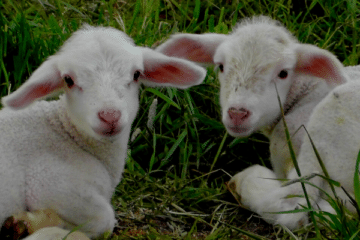Mind your head…
BASC Young Shots Journalist EUAN TROWER takes a closer look at the important issue of the mental health of rural workers.
“Mental health issues do not discriminate – they can affect anyone.” That’s a quote from the Farm Safety Foundation’s Little Book of Minding Your Head. It’s an easily accessible and straight-to-the-point booklet promoting greater understanding of mental health issues in rural workers.
I spoke with Stephanie Berkeley at the Farm Safety Foundation to discuss how their charity has been educating the next generation of rural workers about the importance of prioritising mental wellbeing.
Caring for the mental health of rural workers
The Farm Safety Foundation was set up in 2014 to try and reduce the number of farming accidents. Their research into this matter showed that the leading cause of accidents was stress and the pressure workers were under. “If you’re worried, or distracted, you’re actually more dangerous than the machinery you’re working on,” said Stephanie.
Strikingly, in 2019 alone, 83 people working in agriculture and land management took their own lives. These tragic statistics support the idea that the rural community struggles to deal with mental ill-health. Living and working in rural areas, workers like farmers and gamekeepers can go days on end without talking to another person. This isolation makes spotting the tell-tale signs that someone isn’t okay much harder.
It’s okay to not be okay
Another challenge is breaking the stigma around the mental health of rural workers. Encouragingly, Stephanie described how there is greater willingness among younger people in rural professions to talk about these issues. They “don’t see it as a sign of weakness” anymore. The Foundation has been targeting agricultural and land management colleges. It wants to educate young people on how taking proper care of their mental health is key to staying safe at work. “We teach farm safety and mental health with equal weighting,” said Stephanie.

This especially applies to those working in shooting, like gamekeepers. Many refuse to seek help, even if they suspect they may be suffering from mental ill-health. They are simply worried that diagnosis could result in them losing their firearms and the ability to do their jobs.
This is where it comes down to everyone in our rural communities, whether a worker or an employer, speaking openly and without judgement about mental health issues. The Foundation, and many others, are trying to show that if you’re suffering with any mental health issues, the support is there and you are not alone. Mental ill-health is not uncommon. Up to one in four people may experience a diagnosed mental health condition in any year. The key to preventing more people hurting themselves is to maintain an open dialogue about the matter. As Stephanie highlighted, the Foundation’s message on mental health comes down to one simple idea: “mental health issues are there, and they’re nothing to be ashamed of”.
What are the warning signs?
The Little Book of Minding Your Head points out that people suffering from mental health disorders will often describe feeling hopeless or useless. They often lose interest in things they once enjoyed.
During the COVID-19 pandemic, one would have expected the number of calls to mental health charities dealing with rural areas to have risen. But there hasn’t been any noticeable change. In the end, isolation is a familiar experience for those working in land management roles. A large contributor to stress for rural workers is the hostility and aggression they often receive from campaigners and protestors. This is something which largely disappeared under lockdown.
Charities predict that it is the return to normal that will spark a sharp increase in the number of people needing support.
So, ask yourself, have you been minding your head lately? Or do you perhaps know someone you’re concerned about? If so, please visit The Foundation’s website for advice.
Prof Ann Mortimer advises…
My personal and professional experience is that people with certificates, particularly those whose work requires firearms, are most reluctant to acknowledge any mental health issues. Nevertheless, getting help exemplifies the sort of responsible attitude which all certificate holders should have.
Understandable misery is a normal response when things go wrong. The best way to cope is to utilise help and support from family and friends – after all, that’s an important reason why we have them. Usually things get better, and we are stronger, having come through adversity.
If things do not improve, there is a range of resources to help on the Internet. Several sites offer good advice on stress, depression and anxiety, alongside do-it-yourself therapies. It’s best to pick something that feels right, and use it at one’s convenience – it’s private, and no one need know.
If that does not work, it’s best to consult one’s GP. Treatment for mental health issues is very good nowadays. Choices include counselling, medication, or both. Working things out with an independent person can be very helpful, while a course of antidepressants will be safe and not addictive.
In summary, it is far better to access treatment and get better, than avoid it. Don’t risk becoming stuck, or getting worse. Finally, in my experience, having depression without thoughts that life is not worth living, is not taken by most FEOs as grounds for refusal of a certificate.”
Alternatively, below are some helplines you can call:
The Gamekeepers’ Welfare Trust
All-round support for gamekeepers
03001 233 088
thegamekeeperswelfaretrust.com
FCN (The Farming Community Network)
Practical support
03000 111 999 (7am-11pm daily)
fcn.org.uk
R.A.B.I. (The Royal Agricultural Benevolent Institution)
Welfare and financial help
01865 724 931 (weekdays 9am-5pm) Helpline: 0808 281 9490
rabi.org.uk
The Addington Fund
Housing support
01926 620 135
addingtonfund.org.uk
Mind
Advice and support
03001 233 393 (weekdays 9am–6pm)
mind.org.uk
Samaritans
116 123 (24/7)
samaritans.org



